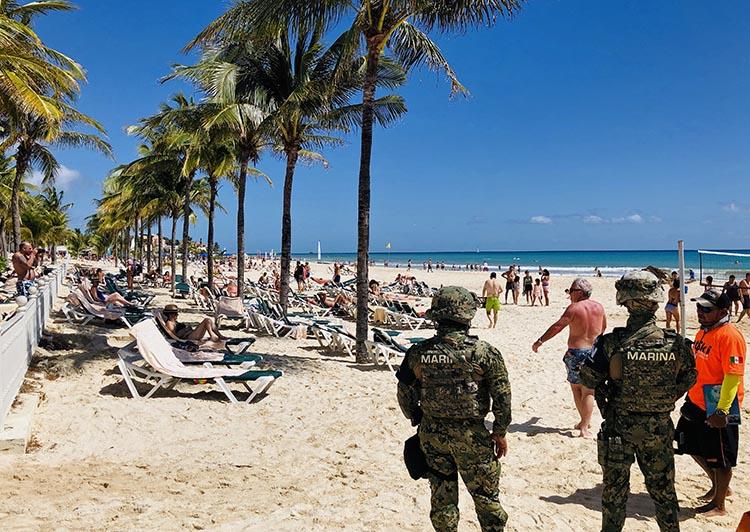Mexico City, May 17, 2019–Mexican authorities must immediately undertake a credible and transparent investigation into the killing of Francisco Romero Díaz, a reporter who was shot dead yesterday in Playa del Carmen, a beachside resort in the southern Mexican state of Quintana Roo, the Committee to Protect Journalists said today.
Amir Ibrahim, Romero’s editor at the local newspaper Quintana Roo Hoy, told CPJ that Romero’s wife had said the journalist left home in the early hours after receiving a tip about a possible story. At approximately 6 a.m., Romero arrived near an establishment in the city, where unidentified gunmen shot him at least twice in the head, according to a statement given to media by the Quintana Roo state attorney general’s office later that day. Romero died instantly.
Romero, 28, had been enrolled in a federal protection program since mid-2018, according to an official of the Federal Mechanism for the Protection of Human Rights Defenders and Journalists, who asked to remain anonymous in order to speak with CPJ. The official said that Romero was assigned government bodyguards after he received threats around the time that two of his colleagues at Semanario Playa News, a now defunct Facebook news page for which he reported, were killed.
“This brutal murder of Francisco Romero Díaz is a direct consequence of the unabating violence in Quintana Roo and Playa del Carmen, a state and city popular with tourists, but lethal for journalists,” said Jan-Albert Hootsen, CPJ’s Mexico representative. “Mexican authorities must do everything in their power to bring the culprits to justice, and the Federal Protection Mechanism must conduct a thorough review into the murder of a journalist under its protection program.”
Today, the federal undersecretary for Human Rights, Alejandro Encinas, who is responsible for the Federal Mechanism, told a press conference that Romero had left his residence without informing his bodyguards. Encinas said that Romero’s widow told the federal government that the mechanism had provided adequate protection up to that point.
CPJ was unable to immediately obtain contact information for Romero’s widow to ask for comment.
In a video that Romero made about a month ago, which his editor shared with CPJ, the journalist said that he had been abducted and threatened for his reporting, but that he would not be silenced and planned to continue to report.
In 2018, Romero told CPJ he had received numerous threatening telephone calls and social media messages. Last year, CPJ reviewed a series of threats against his life sent via Facebook. Romero had told CPJ on several occasions that he suspected organized crime groups were behind the threats.
The Quintana Roo state attorney general’s office, in a statement released to media, said that it had opened an investigation into the murder. Ricardo Sánchez Pérez del Pozo, the head of the office of the Federal Special Prosecutor for Attention to Crimes Committed against Freedom of Expression (FEADLE), told CPJ today that his office had not yet opened an investigation, and that it was waiting for more information from state authorities.
Romero had worked for Quintana Roo Hoy, one of the state’s major newspapers, for approximately six months, and covered crime and local politics, according to Ibrahim. He had recently worked for the news website Quinta Fuerza and also ran a Facebook page called Ocurrió Aquí. Romero’s most recent posts on Ocurrió Aquí included stories and videos about local politics and the robbery of a consultancy business in Playa del Carmen.
Several telephone calls that CPJ made to Quinta Fuerza for comment yesterday and today went unanswered.
Romero was previously a reporter and editor for Semanario Playa News, a Facebook page that published news on Playa del Carmen and the surrounding area. The page’s founder, Rubén Pat Cauich, was killed in Playa del Carmen on July 24, 2018, and one of its reporters, José Guadalupe Chan Dzib, was killed on June 29, 2018. Playa News stopped being active after those murders. CPJ is still investigating to determine if journalism was a motive in their killings.
Reporters in Quintana Roo have told CPJ on numerous occasions over the past two years that reporting has become increasingly dangerous. As well as the killings of Cauich and Dzib, CPJ is investigating the deaths of two other journalists in the region in the past two years to determine if journalism was the motive.
